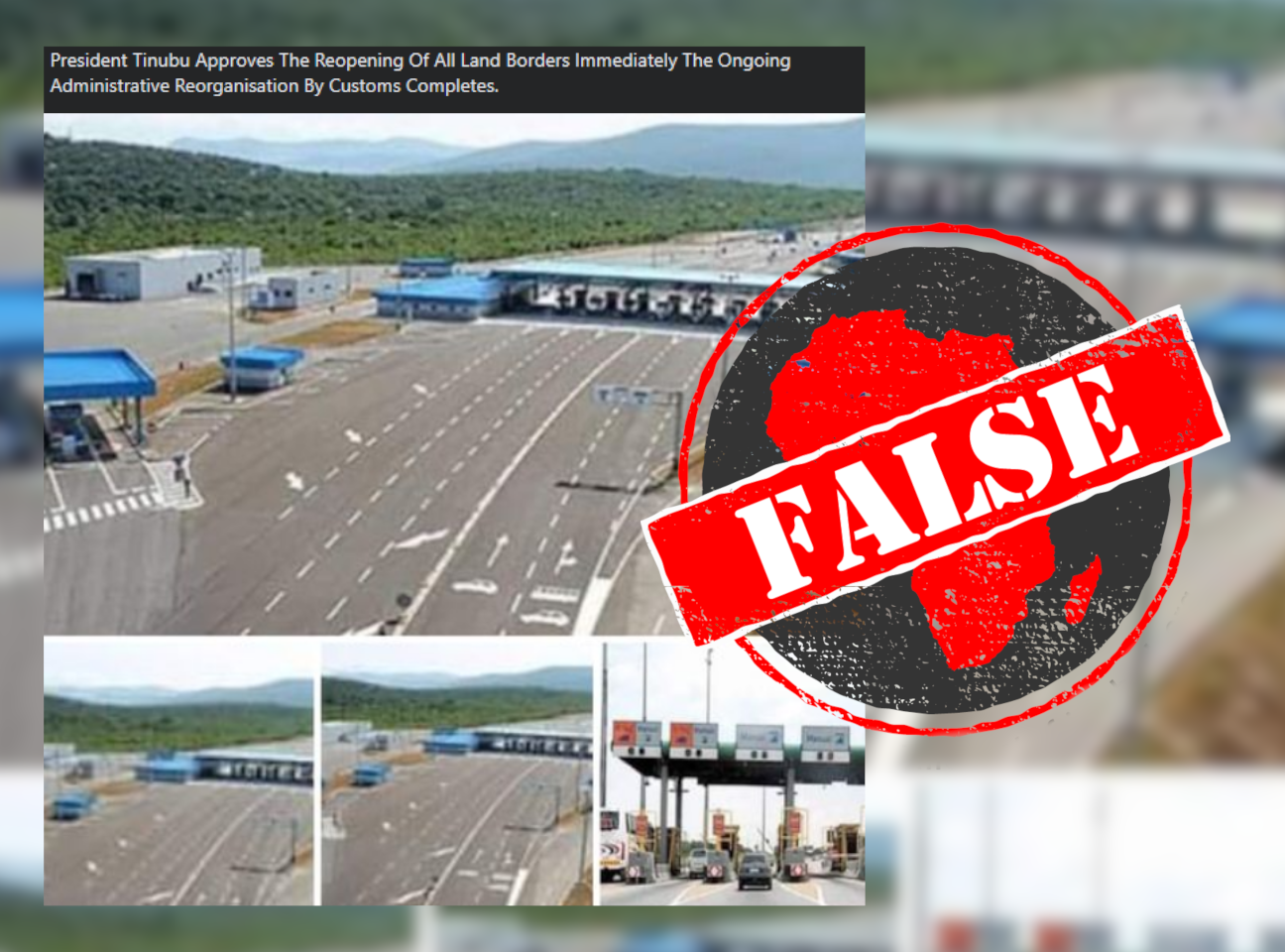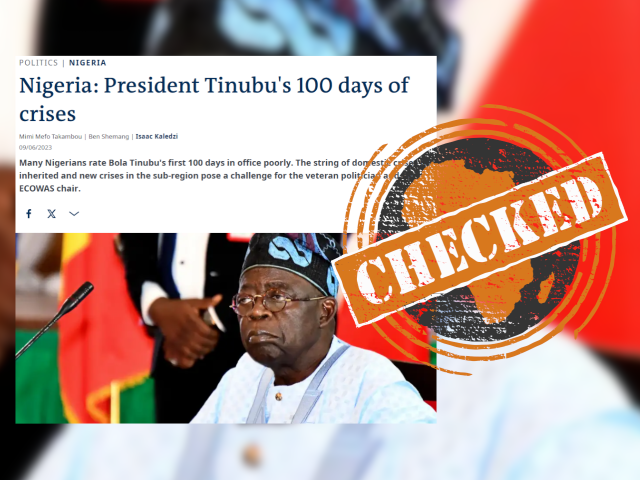IN SHORT: The closure of Nigeria's land borders in 2019 caused economic setbacks. But social media claims that all borders have now been reopened are not true.
Since the inauguration of Nigeria's president, Bola Tinubu, several claims have surfaced online that various land borders have been reopened, many of which have been debunked.
Tinubu's predecessor, Muhammadu Buhari, ordered the closure of all land borders in August 2019, partly to curtail smuggling. However, he ordered the reopening of some before he left office in May 2023.
But a post shared on Facebook claims to have information that all land borders in the country will be reopened on Tinubu’s orders.
The post reads: “President Tinubu Approves The Reopening Of All Land Borders Immediately The Ongoing Administrative Reorganisation By Customs Completes.”
The same claim appeared on Facebook here, here, here, here and here.
But are all of Nigeria's land borders to be reopened on the president's orders? We checked.

Not all land borders reopened
Adewale Adeniyi, comptroller general of the Nigeria Customs Service, said claims that all land borders had been reopened were not true.
According to media reports, he said: “Well, it is not true that all Nigerian borders have been opened … If you remember that the borders were completely shut down in 2018 up until 2022 when some selected strategic borders were reopened, that is still the situation as we speak.”
He said six borders were open and “there are ongoing processes” that would consider whether to reopen others. The public would be informed once all were open, Adeniyi added.
Africa Check previously debunked claims that the Idiroko and Seme borders had been reopened by the Tinubu administration.
Republish our content for free
For publishers: what to do if your post is rated false
A fact-checker has rated your Facebook or Instagram post as “false”, “altered”, “partly false” or “missing context”. This could have serious consequences. What do you do?
Click on our guide for the steps you should follow.
Publishers guideAfrica Check teams up with Facebook
Africa Check is a partner in Meta's third-party fact-checking programme to help stop the spread of false information on social media.
The content we rate as “false” will be downgraded on Facebook and Instagram. This means fewer people will see it.
You can also help identify false information on Facebook. This guide explains how.




Add new comment